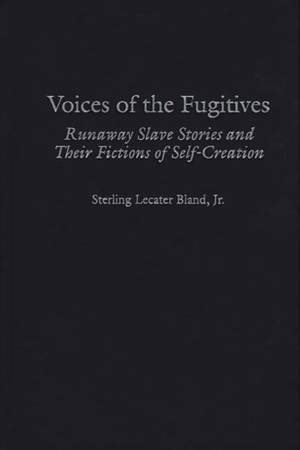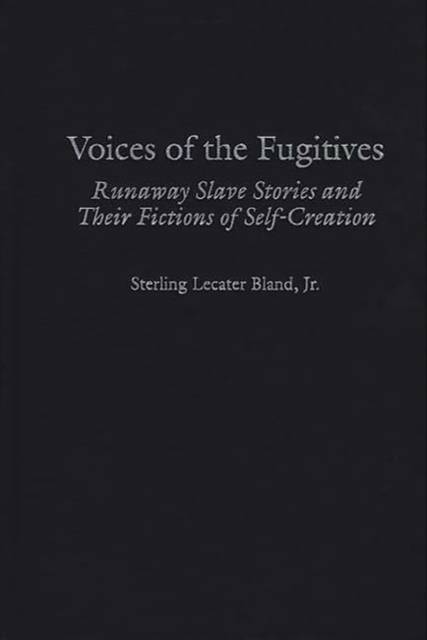
- Afhalen na 1 uur in een winkel met voorraad
- Gratis thuislevering in België vanaf € 30
- Ruim aanbod met 7 miljoen producten
- Afhalen na 1 uur in een winkel met voorraad
- Gratis thuislevering in België vanaf € 30
- Ruim aanbod met 7 miljoen producten
Voices of the Fugitives
Runaway Slave Stories and Their Fictions of Self-Creation
Sterling Lecater BlandOmschrijving
African American fugitive slave narratives are receiving growing amounts of attention for their literary and historical value. This book examines the techniques the slave narrative writers used to authorize and rhetorically create themselves in their writings. By examining such issues as voice and identity formation, the volume demonstrates how identity may be seen as a cultural fabrication. Former slave narrators used a series of masking and doubling techniques to address their experiences as African Americans. This book crosses the boundaries between literary criticism and historical study by examining the tensions between generic conventions and the impulses that created and reinforced them.
The introduction and opening chapter offer clear and accessible discussions of the social, political, cultural, and literary conditions influencing the slave narrative genre. Subsequent chapters are built on this theoretical framework and present close analytical readings of The Confessions of Nat Turner, Frederick Douglass's Narrative and My Bondage and My Freedom, Harriet Jacobs's Incidents in the Life of a Slave Girl, and Running a Thousand Miles for Freedom, by William and Ellen Craft. The volume probingly traces the relationship between rhetorical self-creation and social ideology to show how that relationship was mediated within the fugitive slave narrative genre.Specificaties
Betrokkenen
- Auteur(s):
- Uitgeverij:
Inhoud
- Aantal bladzijden:
- 208
- Taal:
- Engels
- Reeks:
Eigenschappen
- Productcode (EAN):
- 9780313311697
- Verschijningsdatum:
- 30/07/2000
- Uitvoering:
- Hardcover
- Formaat:
- Genaaid
- Afmetingen:
- 163 mm x 242 mm
- Gewicht:
- 480 g

Alleen bij Standaard Boekhandel
Beoordelingen
We publiceren alleen reviews die voldoen aan de voorwaarden voor reviews. Bekijk onze voorwaarden voor reviews.











